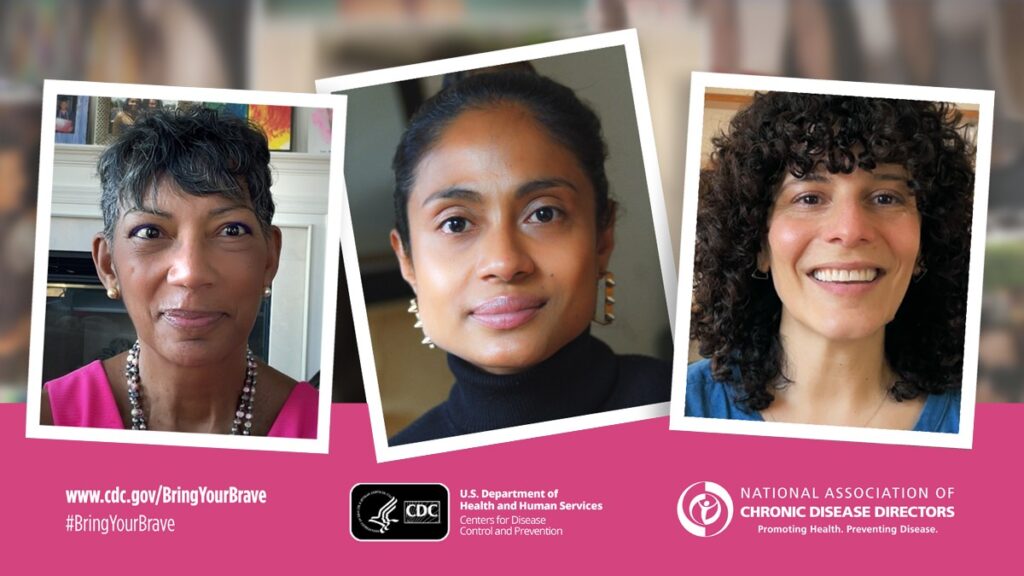Free multimedia resources available to make vital conversations easier

Impact Brief – October 2022
While most breast cancers are diagnosed in older women, nine percent are found in women under 45. And those cases are more likely to be hereditary and to be found at a later stage, when the cancer is harder to treat. So, healthcare providers and educators need to get young women talking about hereditary cancer, understanding their risk, and being proactive about breast and ovarian health.
However, for many patients and families, talking about hereditary breast and ovarian cancer can be daunting. One patient may wonder how to ask about family history when her family typically avoids talking about personal issues. Another may have already discovered she has the BRCA1 or BRCA2 gene and doesn’t know how to share the news or explain what it means for herself or her family members. And many people are not even aware that cancer can be hereditary or that learning about their risk can help them make life-saving choices.
Join the #BringYourBrave movement. The campaign has garnered 5.28 million social media impressions and reached more than 267,000 patients and healthcare providers through partner outreach.
Watch and share today at:
Healthcare providers should fully understand the many social, cultural, and emotional barriers that may be preventing conversations about hereditary cancer. That’s why the National Association of Chronic Disease Directors (NACDD), with support from the Centers for Disease Control and Prevention (CDC), have developed a highly compelling series of videos – with women from diverse backgrounds sharing their personal stories about everything from starting the conversation about family history, to sharing genetic testing results with kids, to overcoming their anxiety around talking to their doctors about this difficult topic.
NACDD and CDC have also produced an animated conversation simulation that models how to start, navigate, respond to, and handle different types of conversations about hereditary breast cancer. Linda, a virtual coach and cancer survivor, helps users learn the valuable skills they need to make good health decisions.
NACDD also collaborated with StoryCenter on a hereditary breast and ovarian cancer storytelling project. In a series of online digital storytelling workshops, cancer survivors from around the country shared and produced intimate stories about how cancer has affected their lives. An additional workshop was held with healthcare providers who shared stories about working with cancer patients and their families.
The hope is that these stories will inspire young women to learn about their risk for breast cancer, talk with their healthcare providers about their family histories, and live breast-healthy lifestyles. These videos are also intended as tools for the providers. Patients talking about their personal experiences – with illness, treatment, or any aspect of healthcare – can help providers improve care by understanding the issues that patients face. Learning about how patients deal with certain diagnoses or about the many non-clinical factors that impact the way they may cope with treatment or recovery can improve the way providers approach patient care.
